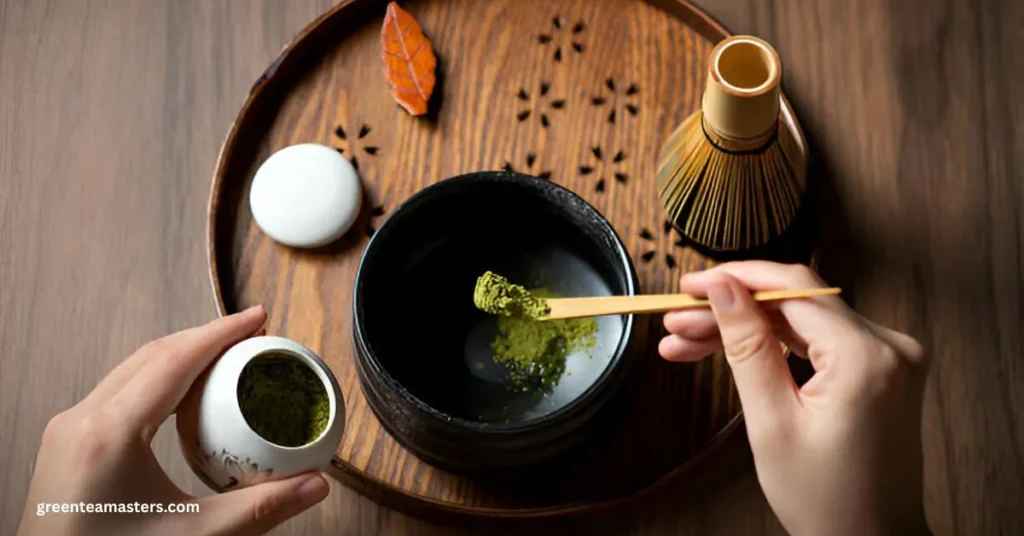Matcha is a type of powdered green tea that has become popular in recent years due to its potential health benefits. However, there are several myths and misconceptions surrounding matcha, including whether or not it can make you infertile.
Some people believe that drinking matcha can cause infertility, but there is no scientific evidence to support this claim. In fact, some studies suggest that drinking matcha may actually help increase the chances of fertility and conception. While there is limited research on matcha’s direct impact on female reproductive health, caffeine, in general, has been studied with mixed results. Some research suggests that high caffeine intake may be associated with fertility issues, while moderate intake does not seem to have a significant impact.
It is important to separate fact from fiction when it comes to matcha and fertility. This article will explore the topic in more detail, examining the available research and providing a clear and accurate answer to the question: does matcha make you infertile?
Matcha and Fertility

Understanding Matcha
Matcha is a type of green tea that has been consumed in Japan for centuries. It is made from shade-grown tea leaves that are ground into a fine powder. Matcha is known for its vibrant green color and unique flavor profile. It is also known for its potential health benefits, including its ability to improve fertility.
Fertility Myths and Facts
There are several myths surrounding matcha and its potential impact on fertility. Some people believe that drinking matcha can cause infertility. However, there is no scientific evidence to support this claim. In fact, drinking matcha has been shown to have potential benefits for fertility.
Scientific Research Overview
While there is limited research on matcha’s direct impact on fertility, some studies have suggested that drinking green tea may improve fertility outcomes. For example, a study published in the journal Fertility and Sterility found that women who drank green tea had a higher chance of conceiving than those who did not. However, it is important to note that this study did not specifically examine the effects of matcha.
Matcha’s Nutritional Profile
Matcha is a rich source of antioxidants, including epigallocatechin gallate (EGCG), which has been shown to have potential benefits for reproductive health. Matcha is also a good source of vitamins and minerals, including vitamin C, vitamin A, potassium, and calcium.
Potential Effects on Hormones
Some experts believe that matcha may have potential effects on hormones that could impact fertility. For example, matcha contains the amino acid L-theanine, which has been shown to have potential benefits for stress reduction. Stress can have a negative impact on fertility, so reducing stress levels may improve fertility outcomes.
Antioxidants and Reproductive Health
Antioxidants, such as those found in matcha, have been shown to have potential benefits for reproductive health. Antioxidants can help to reduce oxidative stress, which can damage sperm and eggs. By reducing oxidative stress, antioxidants may improve fertility outcomes.
Final Words
While there is limited research on matcha’s direct impact on fertility, some studies have suggested that drinking green tea, including matcha, may have potential benefits for reproductive health. Matcha is a rich source of antioxidants and other nutrients that may help to improve fertility outcomes. However, more research is needed to fully understand the potential impact of matcha on fertility.
FAQ
Does matcha affect fertility?
Matcha, being a type of green tea, contains antioxidants and compounds that may have both positive and negative effects on fertility. Moderation is key, as excessive consumption of matcha or green tea may impact fertility due to its caffeine and tannin content.
Does matcha affect pregnancy?
Moderate consumption of matcha during pregnancy is generally considered safe. However, high doses should be avoided as the caffeine in matcha can cross the placenta and potentially affect the developing fetus. It’s best to consult with a healthcare provider for personalized advice.
Is matcha good for sperm?
Some studies suggest that the antioxidants in matcha and green tea may have a positive effect on sperm quality and motility. However, excessive consumption may have the opposite effect due to the caffeine content. Moderation is recommended.
Does green tea affect male fertility?
Green tea, including matcha, contains compounds that may impact male fertility in both positive and negative ways. While the antioxidants may improve sperm health, the caffeine and tannins can potentially decrease sperm count and motility if consumed in excess. Moderation is advised for those trying to conceive.

